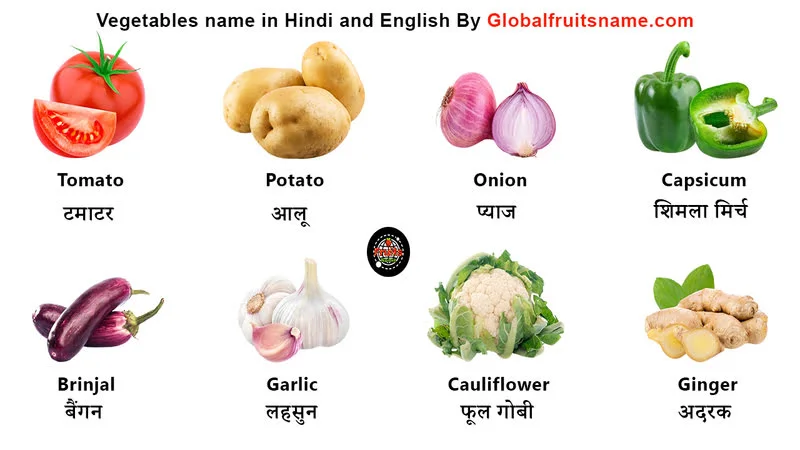
Knowing the names of vegetables in multiple languages can be very useful, especially when traveling or cooking cuisine from other cultures. In this blog post, we will learn over 110+ vegetables name in Hindi and English. Whether you are looking to expand your vocabulary, improve your language skills, cook Indian dishes, or simply satisfy your curiosity, this post has got you covered!
Table of Contents
Why we want to learn vegetables name in Hindi?
Hindi is one of the most widely spoken languages in North India and across many other parts of South Asia. Learning the names of vegetables in Hindi along with their English names can be handy for several reasons:
- It helps you identify and purchase veggies when traveling or shopping in India or Indian grocery stores.
- It allows you to understand Indian recipes better and cook authentic Indian dishes.
- Improves your knowledge of Hindi vocabulary and pronunciation.
- Let’s communicate better with Hindi speakers about food and ingredients.
- It satisfies your curiosity about how vegetable names sound in different languages!
How are vegetables named in Hindi?
Most vegetables name in Hindi are either a phonetic translation of the English word or are derived from Sanskrit. For example, ‘tomato’ is called ‘tametar’ in Hindi, which sounds similar to the English name. Onions are called ‘pyaaz’, which comes from the Sanskrit word ‘palandu’.
Some words like ‘aloo’ (potato) and ‘kaddu’ (pumpkin) have no direct English equivalent and are uniquely Hindi words. The names can also differ based on the region, as India has many local accents. The vegetable names provided in this post use the most common Hindi terms.
Top 110+ Vegetables in English and Hindi

Let’s learn what vegetables and leaves are called in the Hindi language
| English | Hindi |
| Vegetables | सब्ज़ियाँ |
| Leaves | पत्तियों |
Now that you know why learning vegetable names can be useful and how they originate, let’s get straight into the list!
Vegetables name in English and Hindi with beautiful pictures:
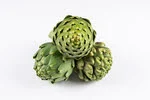
English: Artichoke.
Hindi: हाथी चक (Hathi Chak)
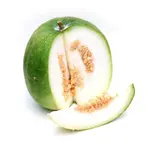
English: Ash gourd, wax gourd, winter melon.
Hindi: पेठा (Petha)
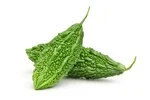
English: Bitter gourd
Hindi: करेला (Karela)

English: Bottle gourd
Hindi: लौकी (Lauki)
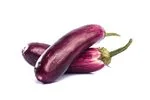
English: Brinjal (Eggplant)
Hindi: बैंगन (Baigan)

English: Broad beans
Hindi: बाकला (baakala)

English: Broccoli
Hindi: हरी गोभी (Hari Gobi)
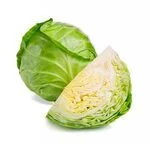
English: Cabbage
Hindi: पत्ता गोबी (Patta Gobee)
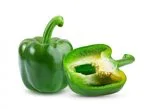
English: Capsicum, Bell pepper
Hindi: शिमला मिर्च (Shimla Mirch)
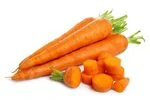
English: Carrot
Hindi: गाजर (Gajar)
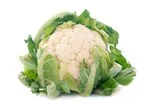
English: Cauliflower
Hindi: फूल गोबी (Phool Gobee)
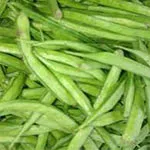
English: Cluster beans
Hindi: गवार फली (Gwaar Fali)
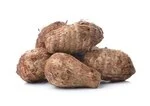
English: Colocasia (Taro root)
Hindi: अरबी (Arbi), पेक्ची (Pekchi)
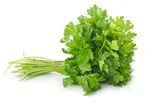
English: Coriander leaves
Hindi: धनिया पत्ती (Dhaniya Pattee)
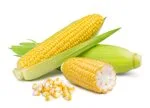
English: Corn
Hindi: भुट्टा (bhutta)
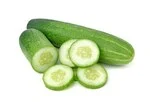
English: Cucumber
Hindi: खीरा (Kheera)

English: Curry leaves
Hindi: कढ़ी पत्ता (Kadhi patta)

English: Drumstick
Hindi: मोरिंगा (Moringa), मूंगा (Munga)
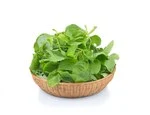
English: Fenugreek leaves
Hindi: मेंथी (Methi)
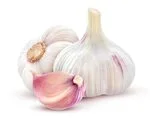
English: Garlic
Hindi: लहसुन (lahasun)
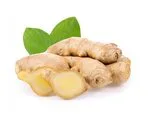
English: Ginger
Hindi: अदरक (Adarak)
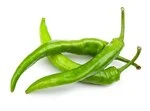
English: Green chili
Hindi: हरी मिर्च (Haree Mirch)
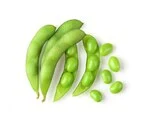
English: Green peas
Hindi: मटर (Matar)
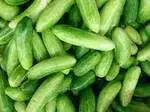
English: Ivy gourd
Hindi: कुंदरू (kundaroo)

English: Kale
Hindi: केल (Kale)
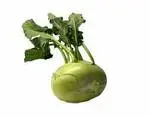
English: Knol khol, lump cabbage
Hindi: गांठ गोभी (gaanth gobhee)

English: Lady’s finger
Hindi: भिंडी (Bhindee)
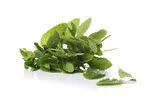
English: Peppermint leaves
Hindi: पुदीना (Pudina)
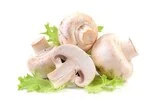
English: Mushroom
Hindi: कुम्भी (Kumbhi), खुखड़ी (Khukhdi)

English: Mustard leaves
Hindi: सरशो पत्ता (Sarsho patta)
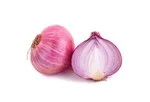
English: Onion
Hindi: प्याज (pyaj)
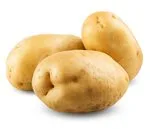
English: Potato
Hindi: आलू (Aloo)
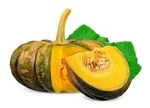
English: Pumpkin
Hindi: कद्दू (Kaddu)
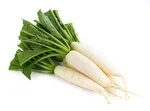
English: Radish
Hindi: मूली (Mooli)

English: Ridge gourd
Hindi: तरोई (Taroe)

English: Snake gourd
Hindi: चिचिंडा (Chichinda)

English: Spring onion
Hindi: हरा प्याज़ (Hara Pyaj)
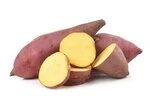
English: Sweet potato
Hindi: शकरकंद (Shakarkand)
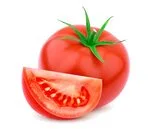
English: Tomato
Hindi: टमाटर (Tamatar)

English: Turmeric
Hindi: हल्दी (haldee)
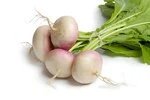
English: Turnip
Hindi: शलजम (Shaljam)
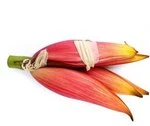
English: Banana flower
Hindi: केले का फूल (Kele Ka Fool)
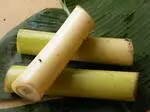
English: Banana stem
Hindi: केले का तना (kele ka tana)
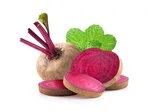
English: Beetroot
Hindi: चकुंदर (Chakundar)

English: Cabbage leaves
Hindi: गोभी के पत्ता (gobhee ke patta)

English: Carrot leaves
Hindi: गाजर के पत्ते (gaajar ke patte)
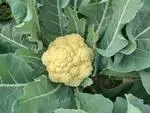
English: Cauliflower leaves
Hindi: फूलगोभी के पत्ते (phoolagobhee ke patte)
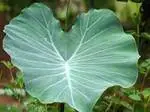
English: Colocasia leaves
Hindi: अरबी के पत्ते (arabee ke patte)
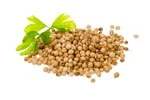
English: Coriander seeds
Hindi: धनिये के बीज (dhaniye ke beej)
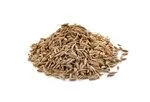
English: Cumin seeds
Hindi: जीरा (jeera)
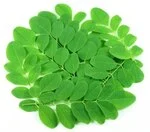
English: Drumstick leaves
Hindi: सहजन की पत्तियां (sahajan kee pattiyaan)

English: Fenugreek seeds
Hindi: कसूरी मेथी (kasooree methee)
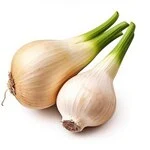
English: Garlic leaves
Hindi: लहसुन की पत्तियां (lahasun kee pattiyaan)

English: Papaya leaves
Hindi: पपीते के पत्ते (papeete ke patte)

English: Red chili
Hindi: लाल मिर्च (laal mirch)

English: Yam
Hindi: जिमीकंद (Jimikand)
To know about the vegetables name in Hindi check the video below 👇
Types of Vegetables in Hindi:
- Fruit vegetables (फल सब्जी)
- cruciferous vegetables (पत्तेदार सब्जियां)
- marrow vegetables (मज्जा सब्जियां)
- Leafy vegetables (पत्तीदार शाक भाजी)
- Stem vegetables (तने वाली सब्जियाँ)
- Root vegetables (जड़ खाने वाली सब्जियां)
Conclusion:
The list covers popular vegetables like cabbage, cauliflower, and brinjal, as well as exotic and lesser-known ones. The Hindi terms are in italics next to the English name for easier understanding.
I’ve tried to provide the most common Hindi name for each vegetable in various regions of India. The post is focused on the core purpose of listing vegetable names in both languages in an easy-to-learn format. Let me know if you would like me to expand on any part or add more details. I can continue writing further based on your feedback.
FAQ:
What are the names of 10 vegetables in Hindi?
Some common vegetable names in Hindi are – pyaaz (onion), tamatar (tomato), aloo (potato), karela (bitter gourd), baingan (eggplant), lauki (bottle gourd), palak (spinach), gobhi (cauliflower), matar (peas) and kaddu (pumpkin).
सभी सब्जियों का राजा कौन है?
Tamatar or tomato is considered the ‘king’ of vegetables as it is one of the most widely consumed and versatile vegetables used globally.
भारत का सब्जी का नाम क्या है?
India is known for many indigenous vegetables like baingan (brinjal/eggplant), bandh gobi (cabbage), lauki (bottle gourd) and karela (bitter melon).
रोजाना कौन सी सब्जियां खानी चाहिए?
For good health, one should eat a variety of seasonal vegetables daily like green leafy veggies spinach, fenugreek, carrots, beans, potatoes, tomatoes, cucumbers etc.
20 फलों के नाम कैसे लिखें?
To write the names of 20 fruits – compile a list of common fruits like mango, apple, banana, grape, orange, papaya, pineapple, peach, plum, pear, pomegranate, apricot, cherry, coconut, fig, gooseberry, guava, jackfruit, kiwi, watermelon.
सब्जियों में सबसे ताकतवर सब्जी कौन सी है?
Dark green leafy vegetables like spinach, broccoli, and kale are considered the most nutrient-dense and ‘powerful’ among veggies.
सब्जियों का बाप कौन है?
Onions are sometimes referred to as the ‘father’ of vegetables, as they form the base for many cooked preparations.
भारत में कितने प्रकार की सब्जियां हैं?
India has over 100 types of vegetables grown across different climatic zones, from leafy greens, gourds, tubers, and roots to beans, stems, and shoots.
सब्जियों की रानी कौन सी है?
Tomatoes are called the ‘queen’ of vegetables for their popularity, taste, and versatility in global cuisines.
भारत की सबसे फेमस सब्जी कौन सी है?
Potatoes, onions, and tomatoes are the most famous vegetables commonly used across India.
भारत का सबसे महंगा सब्जी कौन सा है?
Safed khumb or white button mushrooms are among the most expensive vegetables in India.
11 प्रकार की सब्जियां कौन सी हैं?
Some common types of vegetables are – root vegetables like carrots, potato; leafy greens like spinach, cabbage; beans like French beans, cluster beans; gourds like bottle gourd, bitter gourd; nightshades like brinjal, tomatoes.

Leave a Reply